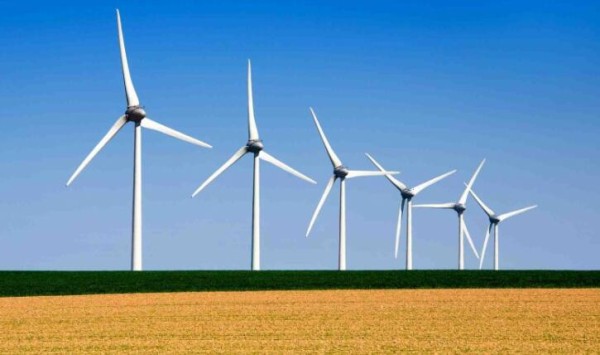“I think China will achieve two miracles at the same time, one is the miracle for economic growth, another miracle is for decarbonization. This is a challenge we never experienced and we are very anxious to make it happen.”

Editor’s Note:
China has announced its targets for peaking carbon dioxide emissions by 2030 and reaching carbon neutrality by 2060. What is the significance of the emission reduction efforts by China, the most populous country, to itself and the world? How will China act to reach the targets? Dr. Zhang Junjie, associate professor in the environment program at Duke Kunshan University gives his insights into this global issue in a joint interview with China Focus and Energy Observer, a monthly magazine dedicated to reporting energy industry and sustainable development. The excerpts of the interview are as follows.
Video Link: https://www.youtube.com/embed/SMNYxejki2w
Why does China push for carbon neutrality?
Dr. Zhang Junjie: China announced the ambitious target of carbon neutrality by 2060 because of international responsibility but also its intrinsic needs. China is part of the global community, so China’s leadership is extremely important for the success of the global climate target. Intrinsically, reducing carbon emissions is aligned with China’s interests of reducing air pollution,transforming its industrial structure, transforming its energy sector, and improving energy efficiency. So putting together, it’s the right time for China to announce the climate neutrality target.
China has worked hard to achieve carbon neutrality. What is the significance of this to the world’s climate change?
Dr. Zhang Junjie: China announced its carbon neutrality target during the Covid-19 pandemic, so that decision was very unusual. Because it was not under the pressure of any country, any developed country, and the announcement was unilateral without significant commitment from the United States, from EU,so this is a unilateral commitment. And China’s announcement helped to incentivize other countries to follow the steps of China. For example, Japan and South Korea announced their carbon neutrality targets after China, and Biden’s administration, once it came to power, also announced its carbon neutrality target. So China indeed boosted global confidence in fighting against global climate change.
China proposed to achieve carbon peak by 2030 and carbon neutrality by 2060. Are these goals easy for China?
Dr. Zhang Junjie: It’s very challenging because of the balance of economic growth and decarbonization. By the end of this decade around 2030, China is about to emit 12 billion tons of greenhouse gases or carbon dioxide equivalent. It means that it only leaves China 30 years to achieve net-zero emission. It means that China needs to reduce about 400 million tons of carbon dioxide per year. This has never happened in human history, especially for a country [that] still needs significant economic growth. It needs to eliminate emissions for a mid-sized European country. I think China will achieve two miracles at the same time, one is the miracle for economic growth, another miracle is for decarbonization. This is a challenge we never experienced and we are very anxious to make it happen.
In order to achieve this goal, what types of measures will China implement next?
Dr. Zhang Junjie: In terms of the policy measures, so all the policies, especially climate policy, are related to assigning a price to carbon. So there could be explicit price or implicit price. Explicit carbon pricing. This has become a market-based instrument for China to achieve its emission target while minimizing its economic impact. But also, there are many other implicit carbon pricing policies, especially for emission standard pilots and for advocacy of the low carbon lifestyle.
Besides climate policy, China has many other complementary climate policies. All these sectoral policies related to energy-saving (and) energy transformation will contribute to China’s climate target.
What types of industry or company will be greatly affected by the process of carbon neutrality?
Dr. Zhang Junjie: We have discussed a lot about the cost of climate mitigation, especially for the national carbon emission trading scheme. Originally it covered the power generation sector, but it will be expanded to seven other sectors including building materials, petrochemical, chemical, paper, steel, nonferrous metal, and domestic aviation. So these sectors will be under pressure, under great pressure, to reduce their emissions. But also we need to look at that, as China continues to grow the economy, as we substitute the dirty sectors with the low carbon ones, it will create lots of business opportunities. So I tend to focus more on the new opportunities that will be created by China’s low carbon transition.
Will it have any impact on the lifestyle of ordinary people?
Dr. Zhang Junjie: Everyone will be affected. If you look at the United States,about 20 percent of emissions are related to household. That’s the direct emission. If we count indirect emission, actually 80 percent of emissions are related to household. It means that reducing emissions is not just the responsibility of companies, not the power generators, not manufacturing sectors, but also our daily lifestyle. So it will change. It needs to change our daily lifestyle.
Travel less. Use teleconference, Use green energy. Use public transport. If you have to drive, drive a new energy car. Use energy-saving lighting bulbs. Use energy-saving appliances at home. These will help us to reduce our energy use or use more green energy.
Media Contact
Company Name: China Focus
Contact Person: Jason Pak
Email: Send Email
Country: China
Website: http://www.cnfocus.com

